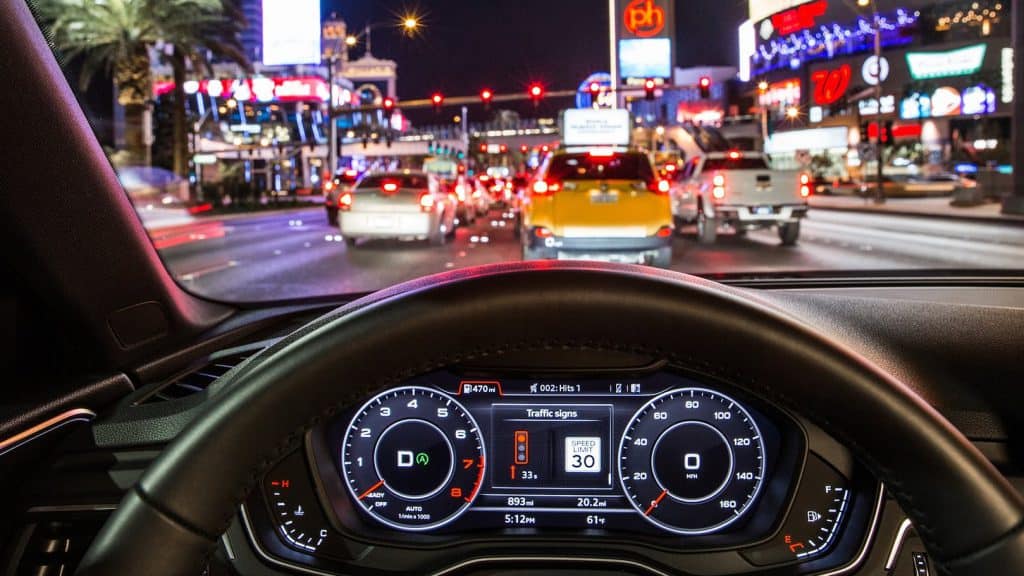
Audi first brought Traffic Light Information (TLI) to production vehicles in 2016, with just a handful of connected signals. Now, five years later, with partner Traffic Technology Services, Audi has surpassed 22,000 connected intersections operated by more than 60 agencies around the U.S., including the latest – New York City, Los Angeles, and San Francisco.
TLI allows drivers to be more confident, providing Green Light Recommended Speed Advisories that can provide a recommended speed up to the limit to help the driver ride a “green wave.” Both an Audi Travolution report and a U.S. Department of Transportation AERIS Research Program Report found that minimizing stop-and-go driving can lead to more than 15% greater fuel-efficiency when drivers are able to respond to predicted traffic signal changes. That’s substantial, given in-vehicle technologies and lightweight materials in vehicles contributing toward efficiency can often have larger cost implications toward next-generation vehicle development compared with tools that help make small adjustments to driving behaviors.
TLI also provides peace of mind with a countdown to green, allowing, for example, on-the-go parents traveling with their children or businesspeople the ability to know when the light will change, helping them sharpen awareness prior to the signal turning red.
TLI works through an LTE signal that comes with an Audi connect® PRIME or PLUS subscription. A connected traffic signal communicates to servers that collect data and recognize patterns to make predictions about that signal, and those servers project them back into a vehicle. Machine learning is also able to augment TLI where signal controllers may not be connected. Audi vehicles only use data from signals found to have a high level of confidence. Signals continue to be added monthly for Audi drivers using TLI.
Initially launched in Portland, Oregon, and Las Vegas, the service has also recently expanded across the U.S., Canada, and some parts of Europe. Some of the latest additions include New York City, Los Angeles, and San Francisco.
This interactive map shows where all Traffic Light Information intersections are located. Initial TLI deployment is often focused in larger Audi sales markets.
Audi has been at the forefront of vehicle-to-everything (V2X) communication for nearly 20 years — well before TLI came to market. As technology progresses, Audi is adding additional V2X services such as Integrated Toll Module for seamless transactions on toll roads and is already looking at what’s next.
Last year, Audi took a further step into the future of smart cars by launching initial test deployments in Northern Virginia and Alpharetta, Georgia, aimed at refining real-world benefits of the most advanced “vehicle-to-everything” connected technology yet.
Advanced cellular-vehicle-to-everything mobility communications, or C-V2X, leverages existing mobile network infrastructure with direct messages into Audi models. The aim is to help enhance safety for vulnerable road users, such as road work crews in the Northern Virginia deployment or warnings to Audi drivers as they approach school zones and school buses. Last November, the U.S. Federal Communications Commission reorganized the 5.9 GHz communications spectrum and decided that C-V2X is the preferred connected vehicle technology for the future in the U.S.
Some of the largest Audi Traffic Light Information agency partners include:
- RTC SNV (Las Vegas area)
- Virginia DOT
- Phoenix
- District DOT (Washington D.C.)
- City and County of San Francisco
- Broward County, Florida
- Portland, Oregon
- MoDOT (Missouri)
- Philadelphia
- Orlando